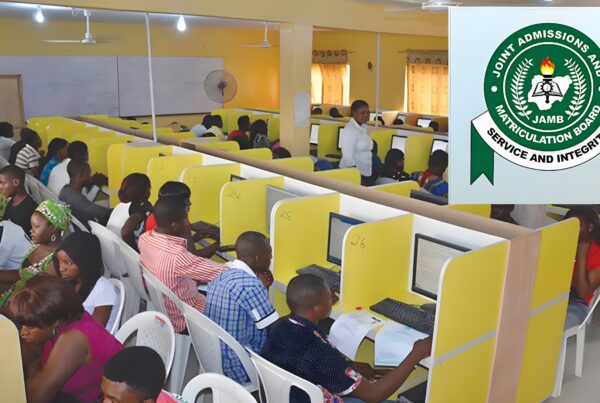The news of former President Muhammadu Buhari’s passing has sent shockwaves, leaving many in a state of stunned disbelief. As the country grapples with his legacy, the spotlight turns to education, where both notable achievements and challenges are evident.
The Buhari administration made significant investments in Nigeria’s education sector, allocating ₦6.798 trillion over its eight-year tenure. The education budget saw a significant increase, growing from N369.6 billion in 2016 to N2.05 trillion in 2023.
Here’s the breakdown of education spending:
– 2016: N369.6 billion
– 2017: N448.4 billion
– 2018: N605.8 billion
– 2019: N620.5 billion
– 2020: N671.07 billion
– 2021: N742.52 billion
– 2022: N1.29 trillion
– 2023: N2.05 trillion
While proponents attribute the investment to the late leader’s commitment to enhancing infrastructure, resources, and opportunities, critics argue that the allocation fell short of the UNESCO benchmark, which recommends 15-20% of the budget for education. The education sector’s budget allocation varied from 4.95 per cent to 10.8 per cent during his tenure.
Establishment of 37 Educational Institutions
Of note, the former President made notable contributions to Nigeria’s education sector by establishing over 37 educational institutions, comprising 18 universities, eight polytechnics, six colleges of education, and five secondary schools.
Some of the institutions include: Federal University of Transportation, Daura, Katsina; David Nweze Umahi Federal University of Medical Sciences, Uburu, Ebonyi; Army University, Biu, Borno; Nigerian Maritime University, Okerenkoko, Delta; Federal University of Agriculture, Zuru, Kebbi; Federal University of Health Technology, Otukpo, Benue; Aerospace University, FCT; Air Force Institute of Technology, Kaduna and others. Buy vitamins and supplements
Also, Federal Polytechnic, Ohodo, Enugu; Federal Polytechnic, Ugep; Federal Polytechnic, Monguno; Federal Polytechnic, Daura, Katsina; Federal Polytechnic, Kaltungo, Gombe; Federal Polytechnic, Wannune, Benue State; Federal College of Education, Jama’are, Bauchi; Federal College of Education, Odugbo, Benue; Federal College of Education (Technical), Gidan Madi, Sokoto; Federal College of Education, Isu, Ebonyi; Federal College of Education, Iwo, Osun State; Federal College of Education, Ekiadolor, Edo State; Federal Science & Tech College, Bauchi; Federal Science & Tech College, Plateau State; Federal Science & Tech College, Sokoto among others are also educational institutions set up by the immediate past administration.
ASUU, ASUP, Others Record Over 860 Days of Strike Under Buhari
Findings by The Guardian revealed that education sector unions in Nigeria, including the Academic Staff Union of Universities (ASUU), Academic Staff Union of Polytechnics (ASUP), Senior Staff Association of Nigerian Universities (SSANU), and Non-Academic Staff Union of Educational and Associated Institutions (NASU), recorded over 860 days of strike action during the late leader’s eight-year tenure.
For instance, ASUU had downed tools for over 610 days – the longest period of industrial action in the country’s democratic era – with the longest strike lasting 270 days in 2020.
The union’s key demands were increased university funding, implementation of the 2009 agreement, and enhanced lecturers’ welfare.
Here’s the breakdown of strike days by unions:
– ASUU: 610 days
– ASUP: 147 days
– NASU and SSANU: 111 days
The prolonged strike actions disrupted the academic calendar, resulting in delayed graduations and lost semesters. The unions blamed the government’s neglect of the education sector and refusal to meet their demands.
Immediate past ASUU President, Prof. Emmanuel Osodeke, insisted that the Buhari government was not sincere with education funding because it was not its priority. “It is always very funny that the federal government cannot raise 200 billion naira to revamp all Nigerian universities annually to world standards,” he said. “The same government can raise N4 trillion for fuel subsidies. Fuel subsidy and Nigerian education, which is more important to any country that wants to move forward?”
1,800 Unity School Teachers Recruited, Owed Three-Year Salary Arrears
Despite the administration’s efforts to bolster the teaching workforce in Federal Government Colleges, also known as Unity Schools, a concerning issue also emerged regarding 1,800 school teachers recruited and posted to Unity Schools across the country in the period under review. Despite being recruited in 2018, 2019, and 2020, these educators were owed three-year salary arrears and allowances, placing a significant strain on their livelihoods.
The unresolved three-year salary arrears and allowances of teachers have sparked concerns about the government’s dedication to supporting educators, who play a vital role in shaping Nigeria’s future.
In conclusion, the Buhari administration’s legacy in education is a mixed bag. While significant investments were made, the failure to meet UNESCO’s benchmark and address pressing issues raises concerns about the government’s commitment to the sector’s growth and development. As Nigeria looks to the future, analysts say prioritizing education as a critical driver of national development is essential to harness the potential of its young population and build a brighter future for generations to come.
Source: The Guardian




